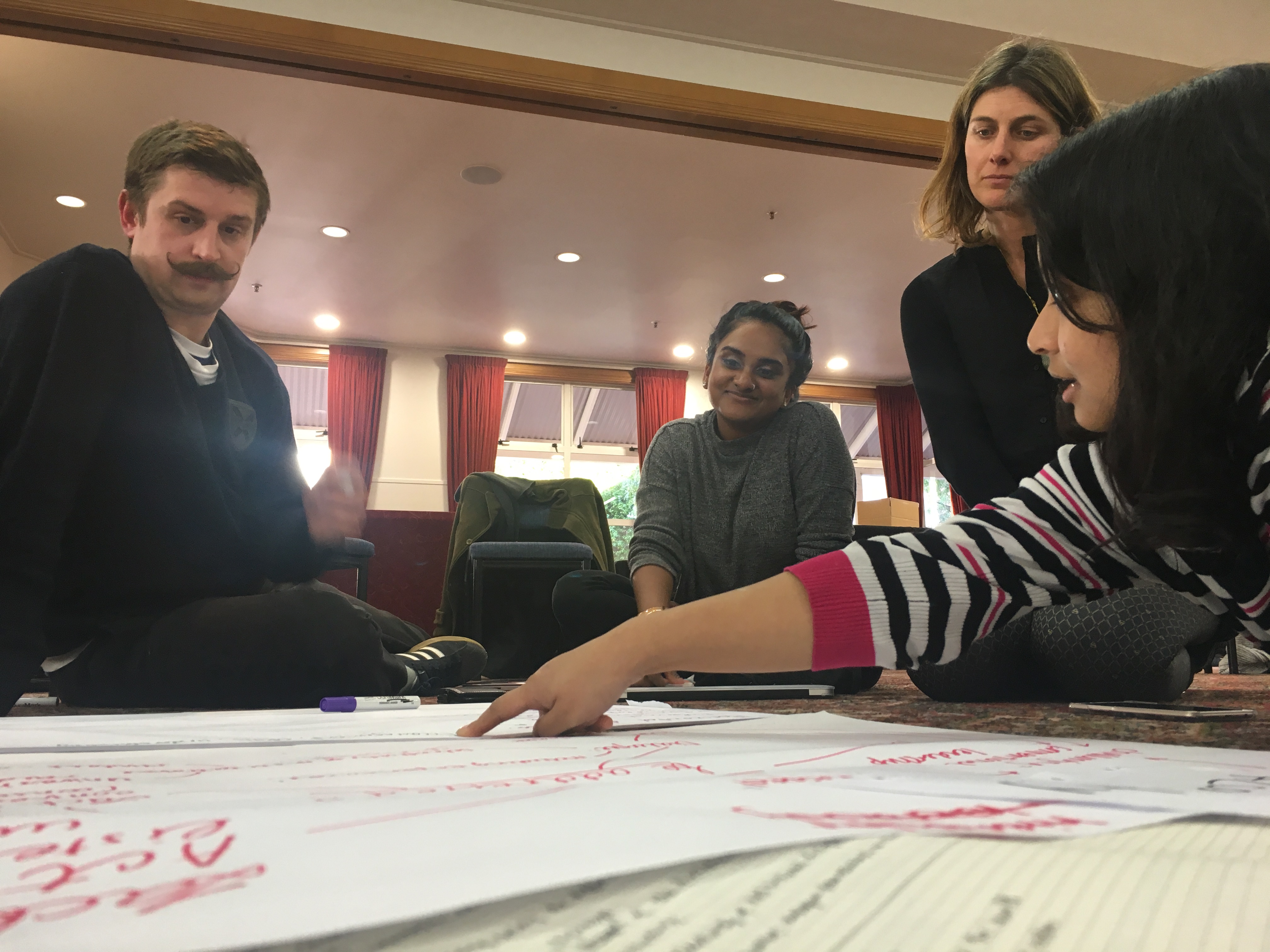Attending the Matariki Conference was an incredible opportunity to meet others who are thinking critically about community engagement and how to make it a sustainable pillar of their institutions. We agreed that one significant barrier to promoting meaningful community engagement at Dartmouth and our peer institutes was the transitory nature of students. This often leads to community engagement being something that students might participate in for a term or two, but seldom with much depth. To combat this shared concern we discussed in great length what it would mean to shift the paradigm of community engagement. Instead of students going out into the community and trying to do well, our long-term vision for community engagement should be that the Upper Valley community feels ownership over the resources of Dartmouth and knows the mechanisms to make requests and take advantage of them. In addition to creating formal channels, we would aim to initiate a revolution of values on campus, where we see the perspectives of global citizenship are incorporated into every aspect of academic and extracurricular life.
After meeting with our adviser, we decided that the most concrete way to work towards this long-term goal is to 1.) Increase the visibility of Matariki on campus to share the ideas we encountered with our Dartmouth peers, 2.) Create a means for students on campus to continually engage with these ideas and to incorporate them into campus life, 3.) Strengthen ties with others schools in the network and create avenues for continued knowledge sharing and critical thought on community engagement. To achieve each step we suggested the following to our on-campus network coordinator:
Increase the visibility of Matariki on campus to share the ideas we encountered with our Dartmouth peers.
In our experiences, the Matariki network is relatively unknown to both students and faculty on campus. We want to host a panel with everyone who has participated in the network so far as a way to increase the profile of Matariki and hopefully involve different parties around campus. The goal would be to inform our audience about the network, how we configured community engagement and our goals for moving forward.
Create a means for students on campus to continually engage with the values of Matariki and to incorporate them into campus life.
We want to create a Matariki society which would serve as a permanent platform for upper-class students to continue conversations started at the forum and to workshop ideas about on-campus implementation. This society would not be affiliated with any of the primary social engagement centers (Dickey, Rocky, Social Impact), to draw students from a variety of communities who can then bring the values of community engagement and the perspective of global citizenship back to whatever realm they occupy on campus.
Strengthen ties with others schools in the network and create avenues for continued knowledge sharing and critical thought on community engagement.
We want to establish an exchange internship between the service coordinating or community engagement departments of various network schools. The goal of the exchange would be to introduce students to a new perspective on community engagement. Internships would involve both time in the administrative offices to learn how community engagement is encouraged on campus, and a ‘field’ experience working in the local community. Students would select between member schools based on the institutions’ involvement with unique social issues. For example, one might want to intern at Otago for their engagement with Maori and Indigenous Communities, or at Dartmouth because of the work being done around access in a rural setting.
At the University of Otago, we learned about the many ways that our peers across Matriki are considering community engagement. We were also given the space to explore and expand our plans to promote social service at our home institutes. Coming back to campus we are all very excited to start laying the groundwork for continued engagement both on campus and across the network.

